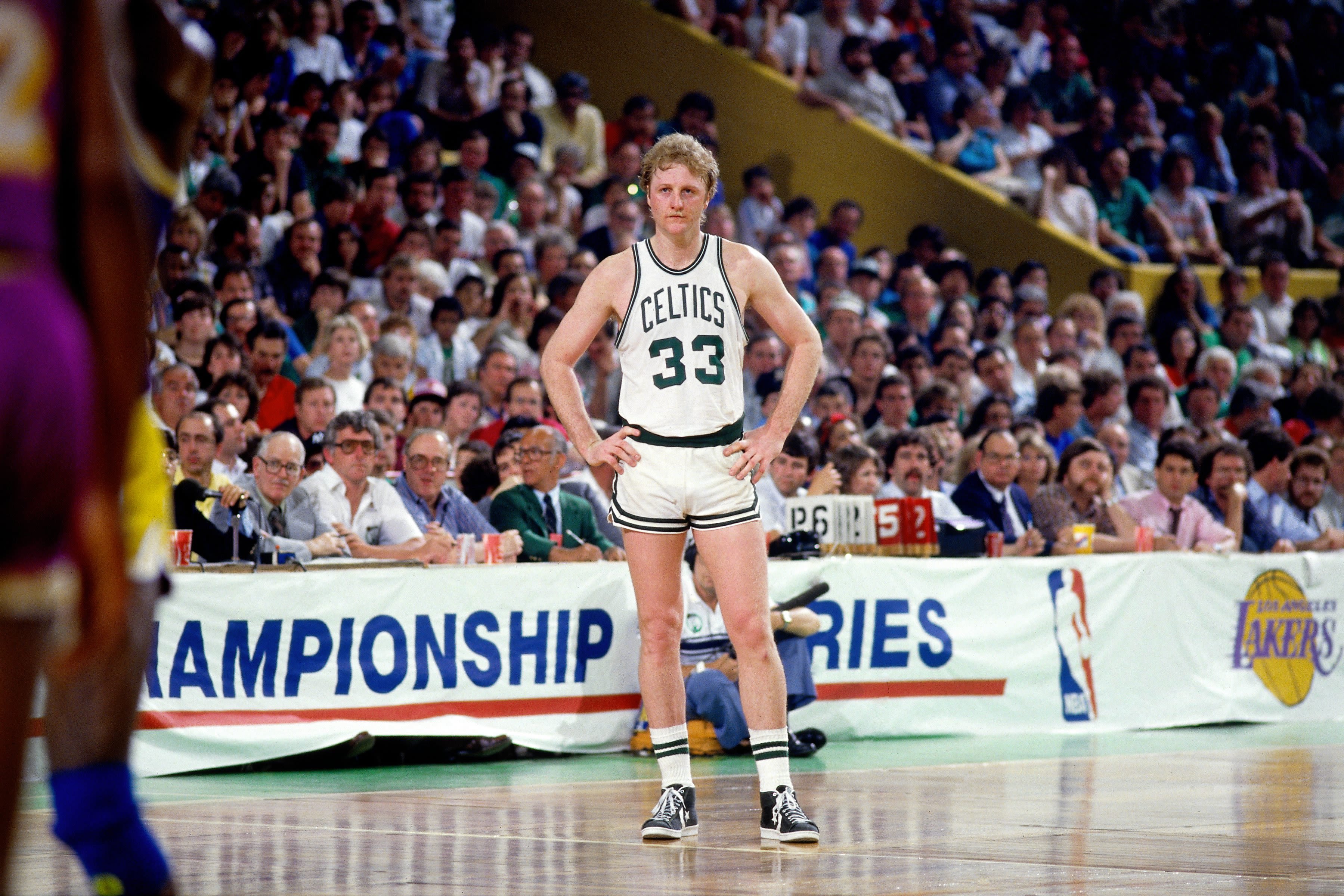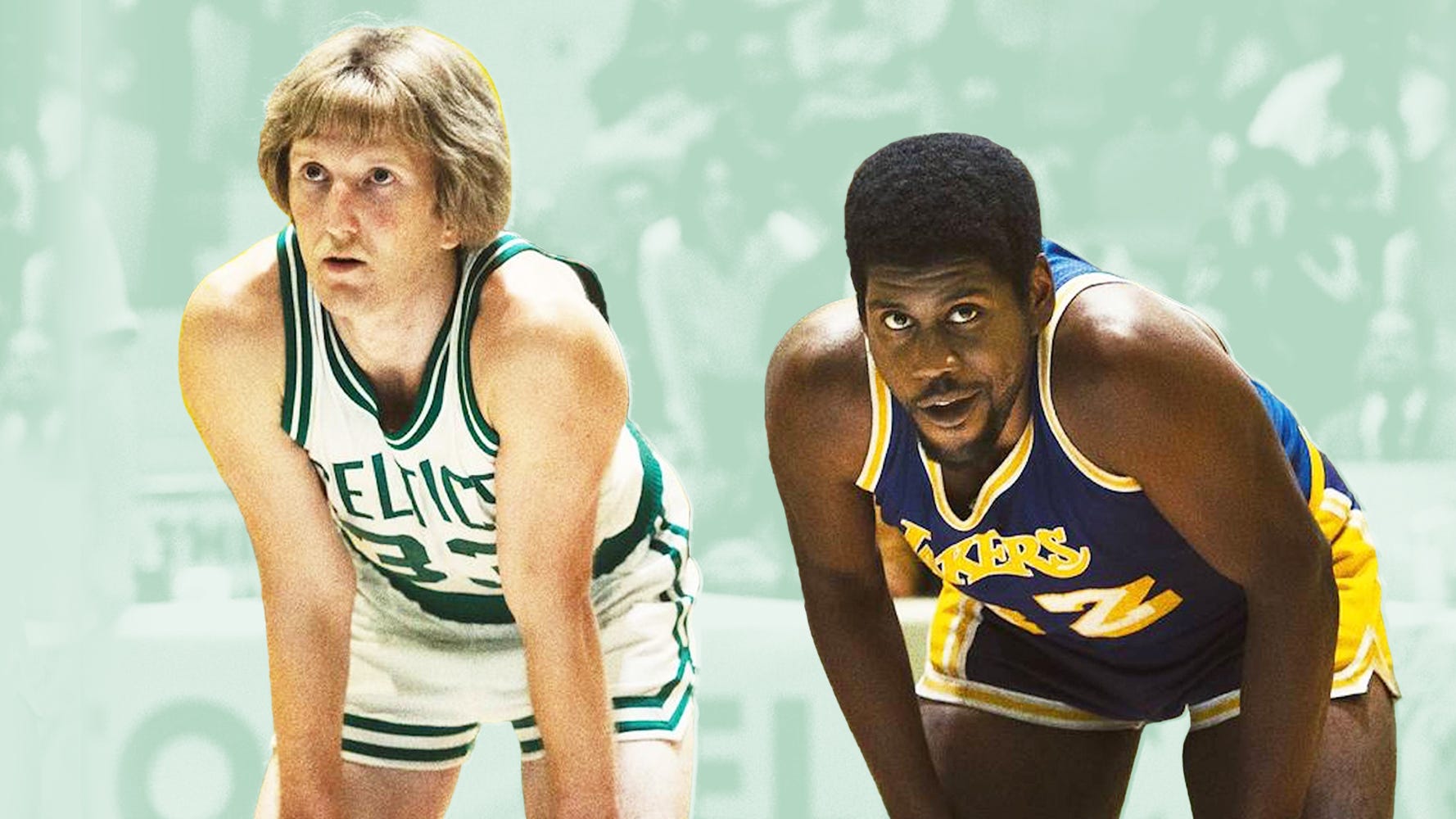Larry Bird (Part 2)
Larry Bird (Part 2)

Larry Bird's entry into the NBA was marked by a series of negotiations and strategic maneuvers. Despite being selected by the Boston Celtics in the 1978 NBA draft, Bird chose to play out his final season at Indiana State before officially joining the professional ranks.
Celtics general manager Red Auerbach initially faced challenges in securing Bird's commitment due to salary negotiations. Auerbach publicly expressed his reluctance to offer Bird a contract exceeding those of existing Celtics players. However, Bird's agent, Bob Woolf, made it clear to Auerbach that Bird would reject any below-market offers and opt to enter the 1979 draft instead, where he would likely become the top pick.
Recognizing the potential loss of Bird's rights, Auerbach and the Celtics engaged in protracted negotiations with Bird's camp. Eventually, on June 8, Bird signed a groundbreaking five-year, $3.25 million contract with the Celtics. This deal made Bird the highest-paid rookie in the history of professional sports at that time.
The significance of Bird's contract negotiations extended beyond his individual deal. Shortly after Bird signed with the Celtics, the NBA implemented the "Bird Collegiate Rule," which aimed to prevent teams from drafting players who were not yet ready to sign contracts. This rule change underscored the impact of Bird's entry into the league and the subsequent adjustments made by the NBA to manage similar situations in the future.
Larry Bird's impact on the Boston Celtics was immediate and transformative. In his rookie season (1979–80), Bird played a pivotal role in elevating the Celtics to championship contention. The team saw a remarkable improvement, increasing its win total by 32 games compared to the previous year and finishing atop the Eastern Conference.
Bird's debut game showcased his versatility, recording a double-double with 14 points, 10 rebounds, and 5 assists. He continued to display his all-around skills throughout the season, notching his first career triple-double and achieving his first 30-point scoring game. With impressive averages of 21.3 points, 10.4 rebounds, 4.5 assists, and 1.7 steals per game, Bird earned selection to the All-Star Team and was honored as the Rookie of the Year./cdn.vox-cdn.com/uploads/chorus_image/image/45169916/1386004.0.jpg)
Before the 1980–81 season, the Celtics fortified their lineup by selecting Kevin McHale in the draft and acquiring Robert Parish, forming a formidable trio alongside Bird. With this strengthened roster, the Celtics advanced to the conference finals for a rematch with the Philadelphia 76ers. Despite falling behind 3–1 in the series, Boston rallied to win the next three games and secure a spot in the Finals against the Houston Rockets. Bird's leadership was instrumental as he averaged 21.9 points, 14 rebounds, 6.1 assists, and 2.3 steals per game during the postseason, helping the Celtics clinch their first championship.
Bird's stellar performance continued in subsequent seasons, earning All-Star Game MVP honors in 1982 and receiving his first All-Defensive Team selection. Despite finishing as the runner-up in MVP voting multiple times, including to Moses Malone in 1982, Bird's impact on the Celtics remained undeniable. However, the team faced playoff disappointments, falling to the 76ers in the conference finals in consecutive years and losing to the Milwaukee Bucks in the conference semifinals in the following season.
Larry Bird's dominance reached new heights during the 1983–84 season, as he was named the NBA MVP for the first time. He put up impressive numbers, averaging 24.2 points, 10.1 rebounds, 6.6 assists, and 1.8 steals per game. In the playoffs, Bird led the Celtics to victory over the Milwaukee Bucks in the conference finals and then defeated the Los Angeles Lakers in a thrilling seven-game series to clinch the NBA championship. Bird's stellar performance earned him the Finals MVP title, averaging 27.4 points, 14 rebounds, and 3.6 assists per game during the Finals.
Bird continued his remarkable play into the 1984–85 season, setting a franchise record with 60 points in a game against the Atlanta Hawks. He was named the league MVP for the second consecutive year, boasting averages of 28.7 points, 10.5 rebounds, and 6.6 assists per game. Despite his individual success, the Celtics fell to the Lakers in the NBA Finals.
In the following season (1985–86), Bird faced adversity when he injured his back while shoveling crushed rock. Despite the setback, the Celtics made a significant trade for Bill Walton, adding depth to their roster. Bird's leadership guided the Celtics to a league-best 67 wins. He showcased his skills by winning the inaugural Three-Point Shootout at the NBA All-Star Weekend. Bird's remarkable season culminated in his third consecutive MVP award, making him only the third player in NBA history to achieve this feat.
In the playoffs, the Celtics dominated their opponents, losing only one game en route to the Finals against the Houston Rockets. In Game 6 of the Finals, Bird recorded a triple-double, leading the Celtics to victory and securing their third NBA championship in six years. The 1986 Celtics are widely regarded as one of the greatest basketball teams of all time.
References
- "Mel Daniels". September 7, 2012. Archived from the original on October 30, 2023. Retrieved October 30, 2023.
- ^ Davis, Seth (March 4, 2009). "When March Went Mad". Sports Illustrated. Archived from the original on September 30, 2013. Retrieved May 17, 2012.
- ^ Bird, Larry (1989), Drive: The Story of My Life. Doubleday, pp. 39–40. ISBN 0-385-24921-7
- ^ "Throwback Thursday: Celtics Draft Larry Bird Sixth Overall". Boston Magazine. Archived from the original on January 2, 2016. Retrieved December 31, 2015.
- ^ Professor Parquet (January 7, 2015). "The story of how rookie phenom Larry Bird led the NBA's greatest turnaround season". CelticsBlog. Archived from the original on January 2, 2016. Retrieved December 31, 2015.
- ^ Magic & Bird: A Courtship of Rivals. HBO, 2010.
- a b c "Larry Bird Bio". Yardbarker. January 18, 2021. Archived from the original on April 10, 2021. Retrieved April 6, 2021.
- "Larry Bird NBA Stats". Basketball-Reference.com. Archived from the original on May 12, 2013. Retrieved May 13, 2015.
- ^ Dana Hunsinger (May 4, 2015). "Larry Bird's baseball career: A lofty .500 batting average". Indystar.com. Indianapolis Star. Archived from the original on May 21, 2019. Retrieved December 8, 2016.
- ^ May, Peter (1994). The Big Three. New York, NY: Simon & Schuster. p. 41. ISBN 978-1-4165-5207-9. Archived from the original on March 7, 2023. Retrieved January 19, 2020.
- ^ Braude, Dick (June 8, 1979). "For $3.25 million, Celtics land Bird". The Day. (New London, Connecticut). Associated Press. p. 33. Archived from the original on June 8, 2021. Retrieved November 14, 2020.
- a b May, Peter (2007) [1994]. The Big Three. New York: Simon and Schuster. p. 57. ISBN 978-1-4165-5207-9. OCLC 86221987. Retrieved March 21, 2013.
- ^ "1978–79 NBA Season Summary". Basketball Reference. Archived from the original on October 14, 2013. Retrieved March 2, 2014.
- a b "1979–80 NBA Season Summary". Basketball Reference. Archived from the original on August 4, 2011. Retrieved March 2, 2014.
- ^ "Houston Rockets at Boston Celtics Box Score, October 12, 1979". Basketball-Reference. Archived from the original on January 2, 2020. Retrieved November 22, 2019.
- ^ "Detroit Pistons at Boston Celtics Box Score, November 14, 19









































